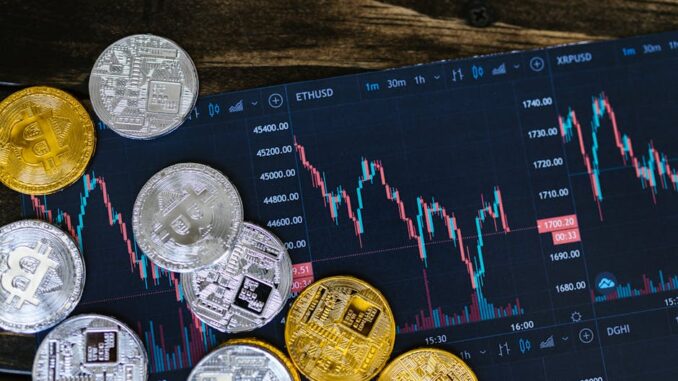
Singapore, a prominent global financial hub, now definitively reshapes its digital asset landscape. By June 30, 2025, the Monetary Authority of Singapore (MAS) enacts a robust new regulatory framework that directly impacts Digital Token Service Providers (DTSPs) operating from the city-state but serving clients exclusively outside its borders. This pivotal move, under the Financial Services and Markets Act 2022 (FSMA), signals Singapore’s resolute commitment to mitigating illicit financial flows and safeguarding its international reputation. [2, 3, 4, 9]
Expanding Regulatory Reach
For years, Singapore has strategically cultivated an environment fostering digital asset innovation while concurrently building a robust regulatory perimeter. The Payment Services Act (PSA) previously governed crypto services provided to customers within Singapore. However, a significant regulatory gap persisted: entities operating from Singapore could serve entirely overseas clientele, potentially sidestepping rigorous oversight in other jurisdictions. MAS views this practice, commonly known as regulatory arbitrage, as a substantial risk to Singapore’s credibility and its ongoing efforts to combat money laundering and terrorism financing (ML/TF). [3, 4, 7, 8, 9, 10]
Investor Identification, Introduction, and negotiation.
Recognizing this vulnerability, MAS has consistently signaled its intent to extend its supervisory reach. The FSMA, passed in April 2022, provides the legal backbone for this expansion, specifically through provisions like Section 137. This section brings individuals, partnerships, and Singapore-incorporated corporations providing digital token services outside Singapore under MAS’s direct purview. [3, 4, 6, 8, 10, 12] MAS’s intention became abundantly clear in a May 30, 2025, consultation response and a June 6, 2025, clarification: entities serving solely overseas customers must now obtain a DTSP license or immediately cease their cross-border operations. [2, 3, 4, 5, 9, 13] This directive allows no grace period or transitional arrangements, underscoring the urgency MAS attaches to these measures. [4, 9, 13]
Strict Requirements, Limited Paths
The new regulations broadly define DTSPs to include any entity offering token-related services abroad, regardless of size or direct user involvement. This encompasses the transfer of digital payment tokens, the exchange between digital tokens and fiat or other tokens, the custody of tokens on behalf of others, and the promotion of any token-related service. [4] Notably, the regime specifically targets digital payment tokens (like cryptocurrencies such as Bitcoin) and tokens representing capital market products. Service providers dealing exclusively with other tokens, such as utility or governance tokens, remain outside the scope of this new licensing requirement. [2, 5, 9, 14]
MAS has set an exceptionally high bar for granting DTSP licenses to these offshore-focused entities. The regulator emphatically states it will generally not issue a license for such providers, citing the inherent ML/TF risks and the practical limitations of effective supervision when substantive regulated activity occurs outside Singapore. [2, 3, 4, 5, 9, 14] This position effectively creates a de facto licensing ban for many, compelling these businesses to either radically restructure their operations or exit the Singapore market entirely for their overseas-only services. [3, 4, 7]
Compliance involves meeting stringent anti-money laundering and countering the financing of terrorism (AML/CFT) standards, along with other regulatory obligations. While existing licensed providers serving Singaporean customers can continue to serve overseas clients, the new rules are particularly disruptive for firms that previously leveraged Singapore’s pro-innovation stance as a base for unregulated global activities. [3, 4, 5, 9, 14] Non-compliance carries severe consequences: fines reaching up to SGD 250,000 (approximately USD 200,000) and potential imprisonment for up to three years. [4, 10, 13]
A Shift in Global Standing
Singapore’s decisive action resonates across the global cryptocurrency industry. The city-state has long positioned itself as a leading and progressive digital asset hub, attracting numerous crypto businesses. However, this regulatory tightening marks a significant shift, prioritizing robust oversight and risk mitigation over unfettered growth. [7, 9]
MAS’s stance reflects its unwavering commitment to preserving Singapore’s reputation as a trusted, well-regulated financial center. [5, 7, 14] The regulator has engaged with affected parties to discuss the policy and facilitate an orderly wind-down of non-compliant services, indicating a measured yet firm approach to enforcement. [9, 14] The industry has responded with wide-ranging reactions; some firms are rethinking their presence in Singapore, with reports of certain unlicensed cryptocurrency exchanges considering relocation or exiting the Republic. [5, 7]
This regulatory evolution demonstrates Singapore’s proactive adaptation to the complexities of the digital asset space. While the immediate impact includes operational adjustments and potential exits for some firms, the long-term vision is clear: Singapore aims to foster responsible innovation within a tightly controlled and secure financial ecosystem, setting a precedent for other jurisdictions grappling with similar cross-border regulatory challenges. The June 30 deadline solidifies Singapore’s position as a leader in defining the parameters for digital asset operations on a global scale. [3, 7, 9]


Be the first to comment